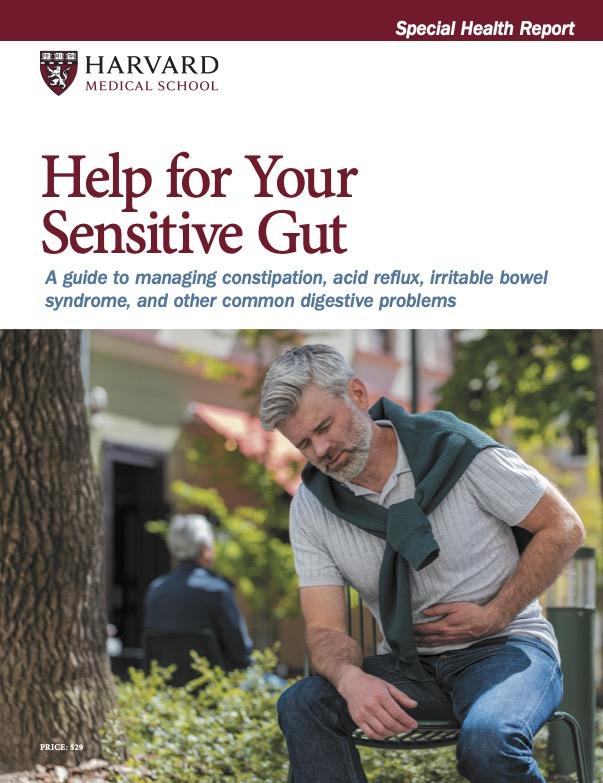Laxatives: What to know about choosing the right one
If constipation becomes chronic, don't keep playing laxative roulette. See your doctor for an exam.
- Reviewed by Howard E. LeWine, MD, Chief Medical Editor, Harvard Health Publishing; Editorial Advisory Board Member, Harvard Health Publishing

Occasional irregularity is a fact of life, but you can minimize it with some basic steps. You should be sure you are eating a fiber-rich diet, drinking adequate fluids, and staying physically active.
But when you have constipation, the best laxative is the gentlest and safest option, like a bulk-forming laxative. If laxatives don't work, ask for help. You should see your doctor and discuss it if you are constantly needing to take laxatives.
How do stool softeners work?
Stool softeners work by softening stools to make them easier to pass. They can be in capsule, tablet, liquid, and syrup form and are usually taken at bedtime. Be sure to take stool softeners exactly as directed. Do not take more or less of it or take it more often than prescribed by your doctor.
First choice: bulk-forming laxatives
Bulk-forming laxatives draw water into stool, making it softer and easier to pass. But don't expect instant gratification: these can take a half-day to several days to provide relief. They are safe to use daily. They contain various ingredients, and you may have to try more than one to find the product that helps you with minimal side effects, such as flatulence and bloating. They may be marketed as laxatives or as fiber supplements.
For stuck stools...
Stool softeners add moisture to stools to make them softer and easier to pass. Mineral oil, a lubricant, helps stools "slide on by" if the stools feel stuck low in your bowels, if you have an internal tear or "fissure," or if you have pain from hemorrhoids during bowel movements.
Don't take mineral oil at the same time as stool softeners. Take 1 tablespoon at breakfast or lunch. But don't use it for more than a few days, because mineral oil interferes with absorption of some vitamins and if inhaled it can cause pneumonia. Consider wearing a protective pad in your undergarments to absorb any leakage.
Other laxative options
If stool softeners aren't providing enough help, the osmotic laxative polyethylene glycol (MiraLAX or a generic version) is good next step. These products hold water in stool to soften it and increase bowel movements. Common side effects are gas, bloating, and nausea.
Another option that works for some people is diet candies containing the sweetener sorbitol. These essentially trigger a mild case of the runs. You may experience bloating and gas along with the laxative effect, however.
Another option would be a magnesium-based laxative, such as milk of magnesia or magnesium citrate. These are members of a larger class of laxatives called saline osmotics, which draw water into the bowels and trigger bowel movements. The active ingredients include magnesium, sulfate, citrate, and phosphate.
But don't take more than the recommended amounts of these laxatives, or use them long-term, because they can throw off your chemistry. Combined with an underperforming kidney or heart failure, saline osmotic laxatives can be dangerous.
Common laxatives and brands |
|
|
Active ingredient |
Common brands |
Bulk forming |
|
|
bran |
cereals and other foods |
|
calcium polycarbophil |
FiberCon |
|
dextrin |
Benefiber |
|
methylcellulose |
Citrucel |
|
psyllium |
Metamucil |
Stool softeners |
|
|
docusate |
Colace, Correctol, Peri-Colac e, Surfak |
|
Lubricants |
|
|
mineral oil |
Various branded and generic products |
|
Osmotics |
|
|
magnesium |
magnesium citrate, milk of magnesia |
|
polyethylene glycol |
MiraLAX or generic versions |
|
sodium phosphate |
Fleet Phospho-Soda |
|
sorbitol or lactulose |
ingredients in various products |
Stimulants |
|
|
Bisacodyl |
Correctol, Dulcolax, Ex-Lax Ultra |
|
Casanthranol |
Dialose Plus, Peri-Colace |
|
Cascara |
Naturalax |
|
castor oil |
various brand and generic products |
|
Senna |
Ex-Lax, Fletcher's Castoria, Senokot |
Stimulant laxatives
Stimulant laxatives such as senna and bisacodyl trigger contractions in the bowels that push the stool along. But if you take stimulant laxatives too often, you could become dependent on them to have a bowel movement at all — possibly because the bowel has stopped functioning normally.
When to talk to a doctor
If you find yourself trying one laxative after another, see your doctor for an evaluation. Additional testing can lead to better therapy and rule out any possible serious malfunctions. And if it is just constipation, your doctor can offer other medications to you that may be more helpful than over-the-counter laxatives.
Image: Wavebreakmedia/Getty Images
About the Reviewer

Howard E. LeWine, MD, Chief Medical Editor, Harvard Health Publishing; Editorial Advisory Board Member, Harvard Health Publishing
Disclaimer:
As a service to our readers, Harvard Health Publishing provides access to our library of archived content. Please note the date of last review or update on all articles.
No content on this site, regardless of date, should ever be used as a substitute for direct medical advice from your doctor or other qualified clinician.
















